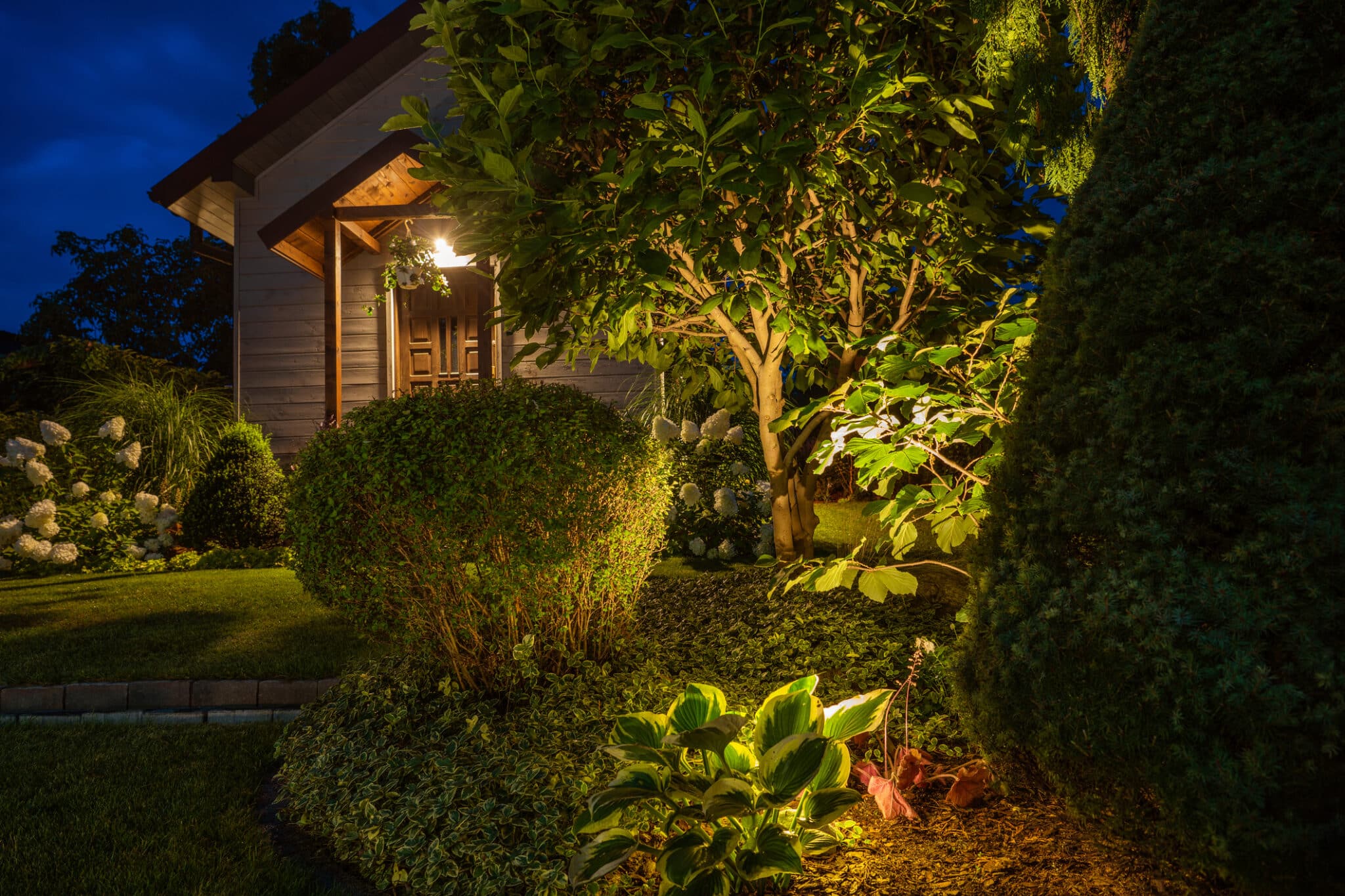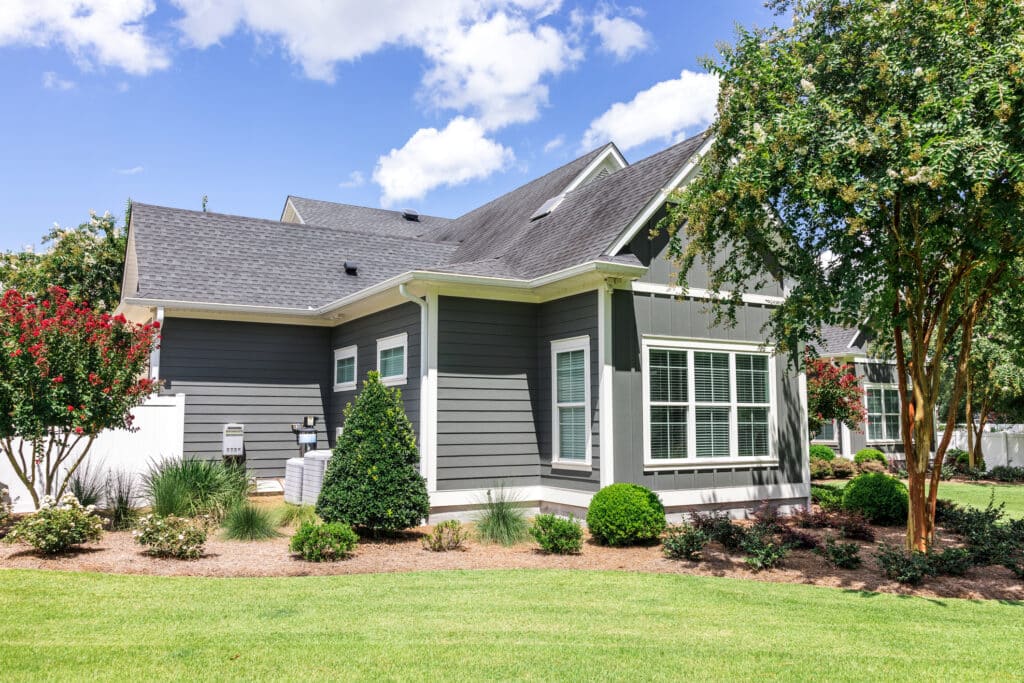Ever feel like your backyard could use a little more peace and quiet? Or maybe those nosy neighbors are getting too close for comfort? Finding the best tree for privacy can turn your outdoor space into a quiet retreat, away from prying eyes and street noise.
Whether you live in Honolulu, Kaneohe, or Waipahu, the right trees don’t just add beauty—they also offer shade, block views, and create a sense of security. Ready to learn how to pick the perfect tree? Let’s dive in!
Table of Contents
ToggleKey Characteristics of Privacy Trees
Choosing the best tree for privacy requires more than just focusing on appearance. Height, density, growth speed, and aesthetic value all play crucial roles in selecting the perfect tree for your space.
Each feature ensures that your home stays well-shielded while adding natural beauty to your yard. In Hawaii’s tropical climate, it’s also essential to select privacy trees that thrive year-round, withstanding rain, wind, and sun.
Finding the right balance between these traits will help you create a lush, secure, and beautiful private sanctuary.
Height and Density
Height and dense foliage are essential features when selecting the best tree for privacy. Tall trees block views from upper-story windows, balconies, or nearby structures, offering complete coverage from top to bottom.
Dense leaves ensure that even during strong winds or tropical showers, there are no gaps where neighbors or passersby can peek through.
Evergreen trees like ficus or areca palms are ideal options because they maintain their thickness throughout the year, ensuring constant privacy. In more crowded areas like Honolulu, Kaneohe, or Waipahu, height and dense growth provide much-needed separation from nearby homes or busy streets.
Growth Rate
The growth rate of a tree plays a significant role, especially when you need privacy quickly. Choosing fast-growing options like bamboo or areca palms ensures that you get an effective screen within a few years, making them among the best trees for homeowners looking for fast results.
However, faster growth means more maintenance, with frequent pruning needed to keep the trees neat and manageable.
Slower-growing trees, like plumeria, may take more time to mature but are easier to care for in the long run. Balancing growth speed with upkeep helps you pick the best tree for your schedule and privacy needs.
Aesthetic Appeal
Privacy trees don’t just block views; they also enhance the beauty of your landscape. Flowering trees, such as plumeria, offer vibrant blooms and a tropical feel, making them some of the best trees to combine beauty and function.
Trees with interesting shapes or textures, like ficus or bamboo, add character to your yard while providing effective coverage. In places like Kaneohe or Honolulu, blending privacy trees with the natural surroundings creates a seamless barrier that feels like part of the environment.
Selecting trees that complement your home’s style ensures your outdoor space remains private, visually appealing, and enjoyable throughout the year.

Factors to Consider When Choosing the Best Tree
Choosing the best tree for privacy isn’t just about height and beauty; several practical factors come into play. It’s important to think about how much space the tree will need to grow and whether it fits within your yard’s size.
Maintenance requirements also vary by tree type, and some may need more care than others. Additionally, privacy trees can affect local wildlife, and you’ll want to select ones that support a healthy environment.
Finally, the tree’s ability to thrive in Hawaii’s specific climate is crucial to ensure it grows well in areas like Honolulu, Kaneohe, or Waipahu.
Space Requirements
Some trees grow wide, while others grow tall, so it’s important to consider how much space each one needs. For smaller yards, compact trees like areca palms or plumeria can provide privacy without taking over.
Large-growing trees, like ficus, need more room and could interfere with nearby structures or overhead power lines if not properly spaced.
Make sure the tree won’t crowd walkways or neighboring properties as it grows over time. In tighter spaces, trees with vertical growth patterns are often the better option to maintain privacy without sacrificing usable yard space.
Maintenance Needs
Not all trees are low-maintenance, so it’s essential to know how much time and effort you’re willing to put into caring for them. Fast-growing trees, like bamboo, often require frequent trimming to prevent them from getting out of control.
Palms and evergreen trees tend to need less maintenance since they retain their leaves year-round and grow steadily.
Some flowering trees, like plumeria, may drop leaves or petals, requiring occasional clean-up. Regular care, such as watering, pruning, and fertilizing, will ensure your privacy trees stay healthy and provide consistent coverage.
Impact on Wildlife
Some trees do more than just provide privacy—they also help local wildlife. Flowering trees, such as plumeria or melaleuca, attract pollinators like bees and butterflies, promoting biodiversity in your yard.
Other trees provide food and shelter for native birds, enhancing the local ecosystem. However, you’ll want to avoid planting trees that could attract pests or invasive species that may harm your yard.
In Hawaii, native-friendly trees are an excellent option since they help maintain the natural balance of the environment. Choosing the right tree ensures that your yard stays private while benefiting local wildlife.
Climate and Growing Conditions
Hawaii’s warm, humid climate requires trees that can thrive in tropical conditions. Some privacy trees, like areca palms and ficus, are well-suited for Hawaii’s environment and grow easily in areas like Waipahu or Kaneohe.
It’s also important to think about how much sunlight or shade your yard receives, as some trees may struggle in certain light conditions.
Trees that tolerate strong winds and salty air are ideal for coastal areas around Honolulu. Selecting the right trees based on your location’s climate ensures they stay healthy and provide long-term privacy without constant replacements.
Top Trees for Privacy in Hawaii
Selecting the best tree for privacy in Hawaii means finding one that thrives in the tropical climate while providing the coverage you need. Hawaii’s environment allows for a wide variety of trees that offer both beauty and functionality, from tall palms to dense shrubs.
Whether you live in Honolulu, Kaneohe, or Waipahu, the right privacy tree can block noise, reduce visibility, and create a tranquil outdoor space. Here are some of the top trees that not only offer privacy but also enhance your yard with their unique characteristics.
Areca Palm (Dypsis lutescens)
The areca palm is one of the best trees for homeowners looking for quick privacy. Its slender trunks grow in clusters, topped with soft, feather-like fronds that create a thick, natural barrier.
This palm grows fast, reaching heights of up to 20 feet, and requires minimal care, making it perfect for busy homeowners.
Areca palms thrive in Hawaii’s tropical conditions, staying green and vibrant year-round. In areas like Honolulu and Waipahu, these palms offer both privacy and a beautiful, tropical feel to outdoor spaces.
Hawaiian Green Tea Tree (Melaleuca alternifolia)
The Hawaiian green tea tree is a versatile option that’s also considered one of the best trees for privacy. Its dense, leafy branches provide full coverage, creating a natural screen that blocks views effectively.
This tree performs well in both sun and partial shade, requiring little maintenance once it’s established. Besides offering privacy, it attracts bees and butterflies, contributing to the local ecosystem. Homeowners in Kaneohe value this tree for its ability to blend into the landscape while enhancing biodiversity.
Plumeria (Frangipani)
Plumeria is not just a showstopper with its fragrant blooms—it also works as an excellent privacy tree. While it doesn’t grow as tall as palms, its spreading branches and thick foliage make it one of the best trees for creating partial coverage.
The plumeria thrives in Hawaii’s tropical environment, flourishing in full sunlight with minimal care. Its vibrant flowers bloom seasonally, adding color and charm to any yard. For homeowners in Honolulu or Kaneohe, plumeria offers a mix of beauty, fragrance, and privacy.
Ficus Trees (Ficus benjamina)
The ficus tree is well-known for its height and dense leaves, making it one of the best trees for complete privacy. It can grow up to 30 feet tall, creating a lush, green wall that blocks both noise and visibility.
However, ficus trees do require regular pruning to keep them from becoming too large or unruly. They thrive in warm, humid conditions, making them ideal for areas like Waipahu and Kaneohe. When planted along property lines or fences, ficus trees create an attractive, long-lasting privacy screen.
Bamboo (Bambusa spp.)
Bamboo is another top contender for the best tree for privacy, thanks to its rapid growth and dense coverage. Though technically a type of grass, bamboo functions like a tree, with tall, upright shoots that create an impenetrable screen.
It grows quickly and requires little upkeep, making it an excellent choice for homeowners who need privacy fast.
Bamboo works especially well in areas like Honolulu, where space is limited, as it grows vertically without spreading too wide. Selecting non-invasive varieties ensures that bamboo won’t overtake your yard, while still offering excellent privacy.
Planting and Positioning Your Privacy Trees
Knowing where and how to plant the best trees for privacy is just as important as selecting the right species. Strategic planting ensures the trees grow healthy, provide the coverage you need, and enhance your landscape without crowding other elements.
Factors like spacing, light exposure, and soil preparation are essential to help your trees thrive. In Hawaii’s tropical climate, planting with these considerations in mind ensures your privacy trees grow well and create the perfect barrier.
Thoughtful planning will ensure that your trees not only look beautiful but also offer effective privacy for years to come.
Ideal Locations for Planting
Choosing the right location makes a significant difference in how well your best tree provides privacy. Planting along fences, pools, or patios helps block noise and visibility from nearby streets or neighbors.
For taller coverage, placing trees like areca palms near windows or balconies creates a natural screen for upper-story views. In coastal or windy regions like Honolulu, it’s essential to plant trees that are wind-resistant and tolerant of salty air to maintain their health.
Proper placement ensures your trees grow efficiently, offering long-lasting privacy and blending naturally into your landscape.
Spacing Between Trees
Proper spacing allows the best trees for privacy to grow to their full potential while still forming a dense screen. Fast-growing vertical trees, such as bamboo or ficus, can be planted closer together since they fill in quickly without spreading too wide.
On the other hand, trees with broader canopies, like plumeria, need more space to avoid overcrowding and to spread comfortably.
If planted too close, trees might compete for water, sunlight, and nutrients, which can hinder their growth. In smaller yards, careful spacing ensures your private trees grow well while still creating a compact, effective barrier without overwhelming the space.
Maintaining Your Privacy Trees
Once you’ve planted the best trees for privacy, proper maintenance is essential to keep them healthy and ensure they provide consistent coverage. While some trees need minimal care, others may require regular pruning, pest control, or extra watering.
With the right upkeep, your trees will continue to thrive in Hawaii’s tropical climate and maintain their shape and density over time.
Proper maintenance also prevents potential issues like overgrowth or diseases that could affect the effectiveness of your privacy barrier. Here’s how you can take care of your privacy trees for long-lasting results.
Regular Care and Pruning
Regular pruning helps privacy trees grow evenly and prevents them from becoming overgrown. Fast-growing trees like bamboo or ficus may need frequent trimming to keep them neat and prevent them from encroaching on other areas of your yard.
Pruning also encourages new growth, which helps maintain the tree’s density for better coverage. Trees like plumeria benefit from seasonal pruning to shape the branches and remove dead leaves or flowers.
In warm, humid areas like Waipahu or Kaneohe, regular care ensures your privacy trees stay lush and well-maintained throughout the year.
Pest and Disease Management
Hawaii’s tropical climate creates an environment where pests and diseases can sometimes affect trees. Best trees for privacy, such as areca palms and ficus, are generally hardy but may still be vulnerable to pests like aphids or scale insects.
Regular inspection of leaves and branches helps you spot any issues early before they become serious problems. Organic sprays or natural pest repellents can be used to manage common pests without harming the environment.
Ensuring proper drainage and airflow around the trees can also prevent fungal infections or root rot, keeping your privacy barrier healthy.
Ready to Transform Your Yard into a Private Oasis?
Create the peaceful, private outdoor space you’ve been dreaming of with the best trees for privacy, perfectly suited for your home in Honolulu, Kaneohe, or Waipahu. At Mana Home Services, we specialize in helping homeowners select and plant the ideal trees for their needs.
Whether you need shade, privacy, or beauty, our team will guide you every step of the way. Contact Mana Home Services today and let’s build the private retreat you deserve!

FAQs About Best Tree
What are the best trees for small yards?
The best trees for small yards are compact options like areca palms or plumeria, which grow tall without spreading too wide. Bamboo is also a great choice, as it offers excellent vertical coverage in tight spaces. These trees fit perfectly into smaller areas, providing both privacy and beauty without overcrowding your yard.
How long does it take for privacy trees to grow?
Fast-growing best trees like bamboo and areca palms can reach full coverage in just a few years. Slower-growing trees such as plumeria and ficus may take longer but require less upkeep once they mature. On average, most privacy trees provide effective coverage within three to five years with proper care.
Can I mix different types of trees for privacy?
Yes, mixing multiple best trees creates a more natural and visually appealing privacy screen. For example, you could pair taller areca palms with flowering plumeria for a lush, colorful landscape. Using a variety of trees ensures year-round coverage and helps your yard adapt to different growing conditions.
Do privacy trees attract pests?
While the best trees for privacy are often resistant to pests, it’s still possible for some to attract insects like aphids or scale. Regular inspections and natural pest control solutions can help prevent infestations. Choosing native-friendly trees also reduces the risk of attracting invasive species, keeping your yard healthy and well-protected.
What is the best time to plant privacy trees?
In Hawaii, the best time to plant privacy trees is during the rainy season, typically from November to March. The increased rainfall helps trees establish strong roots without the need for frequent watering. Planting during this period ensures your trees grow healthy and reach their full potential quickly.


